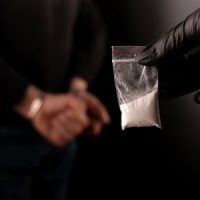Common Ways People Get Charged With Cocaine Trafficking in Florida

Florida is one of the states in the nation with the harshest drug trafficking laws, especially when it comes to cocaine. It is a common misconception that one must be involved in large-scale dealings to face cocaine trafficking charges. In Florida, this is farthest from the truth. While engaging in large-scale cocaine dealings is considered trafficking under Florida law, you can face cocaine trafficking charges even if you are caught with a small amount of the drug and could face severe penalties. If you or someone you know is facing cocaine trafficking charges in Florida, it is crucial that you understand how these charges arise. It is also vital that you know how to defend against charges of cocaine trafficking. Read on!
How Do People Get Charged With Cocaine Trafficking in Florida?
Under Florida law, people can be charged with cocaine trafficking under several circumstances, including the following;
- Possessing 28 Grams or More of Cocaine
People are usually shocked to learn that simple possession of a certain amount of cocaine automatically triggers trafficking charges. You don’t have to be caught selling, delivering, or transporting large amounts of cocaine to be charged with trafficking. According to Florida Statutes Section 893.135, anyone who possesses 28 grams or more of cocaine or any mixture containing cocaine can be charged with trafficking. Even if cocaine is mixed or “cut” with other materials for whatever reason, you can be charged with trafficking, since it is the total weight of the mixture that matters.
- Constructive Possession
Constructive possession means you don’t have direct physical contact or control of the drugs. In Florida, you can be charged with cocaine trafficking if you are found to be in constructive possession of 28 grams or more of cocaine. The prosecutors only need to show that you had the ability and intention to exercise control over the drugs.
- Sale, Delivery, or Transportation of Cocaine
If you are caught selling, delivering, or transporting at least 28 grams of cocaine, you can be charged with trafficking. Even if it was a one-time transaction, such as delivering drugs for another person, you may face serious consequences.
- Conspiracy to Traffic Cocaine
According to Florida law, anyone who conspires with another person to traffic cocaine commits a first-degree felony, equivalent to trafficking. If, for example, you agree to sell 40g of cocaine but never actually follow through with the promise, you can be charged and sentenced as if you had actually committed the crime of cocaine trafficking. However, you must have engaged in acts to further the conspiracy. For instance, if you texted a buyer, secured the drugs, or coordinated a meet-up, you can be charged and sentenced for conspiracy to traffic in cocaine, even if the transaction never happened.
Defending Against Cocaine Trafficking Charges in Florida
While being charged with cocaine trafficking in Florida is a serious thing, these charges are not unbeatable. An experienced cocaine trafficking defense attorney can help you develop a strong defense strategy. Some common defenses to cocaine trafficking charges in Florida include;
- Illegal search and seizure
- Incorrect weight
- Lack of knowledge of the presence of the drugs
- Entrapment if law enforcement coerced you into a drug transaction
- Insufficient evidence
Contact an Orlando Cocaine Trafficking Lawyer
If you or someone you know is being charged with cocaine trafficking, contact a skilled Orlando cocaine trafficking lawyer at Joshi Law Firm, PA, at 844-GO-JOSHI or 407-661-1109, or online for legal help.

